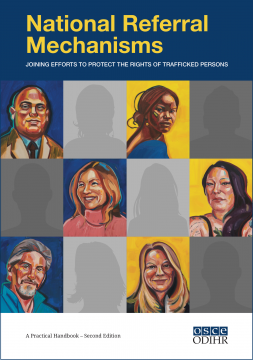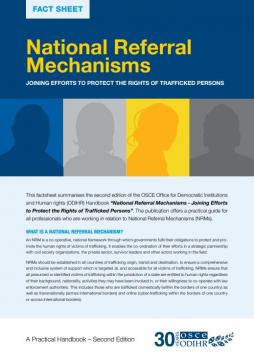National referral mechanisms (NRMs) are the institutional mechanisms that help states identify human trafficking victims and ensure their protection. This handbook provides a guidance model which all OSCE participating States can adapt and apply within their own national systems to ensure that their NRMs meet the highest standards in both design and implementation.
The Handbook provides an overview of the working methods, procedures and services that are required across the four NRM ‘pillars’: identification and protection; individual support and access to services; social inclusion; and criminal justice and redress.
The Handbook also identifies the various stakeholders involved in executing NRMs and their roles across different institutions, and stresses the need for a multi-disciplinary approach.
Innovations in this updated handbook include guidance on dealing with trafficked children and a section on healthcare. In addition, this handbook is accompanied by a series of practical adult and child assessment guides, a selection of promising practices gathered from individual participating States, and a list of 57 recommended standards to assist the participating States seeking to introduce or improve their NRMs.


